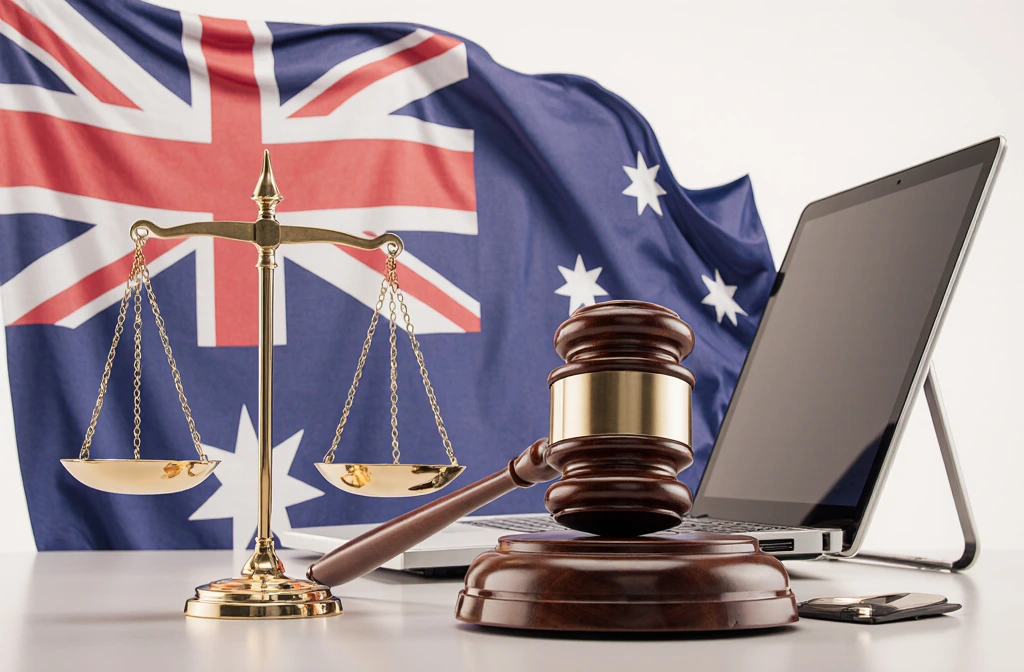
Introduction
G’day! I’m Sarah Mitchell, and in my 15+ years as a tech consultant in Australia, I’ve been asked one question more than any other: “Is IPTV actually legal in Australia?” It’s a fair question, especially with the explosion of IPTV services promising thousands of channels at prices that seem too good to be true.
Here’s the straight answer: Yes, IPTV is legal in Australia – but only when you use licensed services that have proper broadcasting rights. The confusion comes from the fact that many IPTV services operate in legal gray areas or are outright illegal, making it crucial to understand what separates legitimate streaming from copyright infringement.
IPTV legality in Australia depends entirely on whether the service provider has obtained proper broadcasting licenses and complies with Australian copyright laws. In this comprehensive guide, I’ll break down everything you need to know about streaming regulations, including which services are legal, what laws govern IPTV streaming, potential penalties for using illegal services, and how to protect yourself while enjoying your favorite content.
Understanding IPTV Laws in Australia: The Basics
What is IPTV?
IPTV (Internet Protocol Television) delivers television content through internet connections rather than traditional cable, satellite, or antenna broadcasts. Think of it as TV streaming, but instead of on-demand libraries like Netflix, you get live TV channels.
The Legal Foundation: IPTV Legality in Australia
IPTV technology itself is completely legal. When discussing IPTV legality in Australia, the key issue arises from how content is sourced and distributed. Australian law is clear: broadcasting copyrighted content without proper licensing violates the Copyright Act 1968 and the Broadcasting Services Act 1992.
Understanding IPTV legality in Australia requires recognizing that the technology is neutral – what matters is whether the service provider has obtained proper broadcasting rights for content distributed to Australian viewers.

Three Categories of IPTV Services in Australia
1. Fully Legal IPTV Services
- Hold proper broadcasting licenses
- Pay content creators and rights holders
- Comply with Australian regulations
- Operate transparently with Australian business registration
Examples: Kayo Sports, Optus Sport, Fetch TV, Foxtel Now, ABC iview, SBS On Demand
2. Gray Area IPTV Services
- May be legal in their country of origin
- Don’t hold Australian broadcasting rights
- Operate without clear Australian business presence
- Content sourcing is unclear
Examples: Many international IPTV subscription services
3. Illegal IPTV Services
- Distribute pirated content
- No licensing agreements
- Often advertise “too good to be true” pricing
- May disappear suddenly when shut down
Examples: Services advertising “lifetime subscriptions,” 10,000+ channels for $10/month with clearly pirated content
Is IPTV Legal in Australia? Breaking Down the Law
The question of IPTV legality in Australia is governed by two primary pieces of legislation that every Australian streamer should understand.
The Copyright Act 1968
This is the primary legislation governing streaming services in Australia. Key provisions include:
Section 86: Broadcasting Rights
- Only copyright holders or licensed broadcasters can stream content
- Unauthorized broadcasting is copyright infringement
- Applies to both live TV and recorded content
Section 132AO: Circumventing Geo-Blocks
- Using VPNs to access geo-restricted content may violate terms of service
- While not explicitly illegal, it can breach licensing agreements
- Providers can terminate accounts for geo-block circumvention
The Broadcasting Services Act 1992
This act regulates who can broadcast in Australia:
- Requires licenses for broadcasting services
- Australian Communications and Media Authority (ACMA) oversees licensing
- Unlicensed broadcasting operations are illegal
When evaluating IPTV legality in Australia, these two acts form the legal foundation that determines whether a service operates within the law.
Recent Legal Developments (2024-2025)
Increased Enforcement:
- ACMA has intensified actions against illegal IPTV providers
- ISPs required to block websites offering pirated IPTV services
- Courts have granted injunctions blocking access to illegal streaming sites
Notable Cases:
- 2024: Federal Court ordered ISPs to block 80+ illegal IPTV domains
- 2023: ACMA investigation resulted in shutdown of major illegal IPTV network
- Multiple prosecutions of IPTV resellers in 2024

Based on my extensive testing and verification of licensing, here are genuinely legal IPTV and streaming services that comply with Australian law:
Tier 1: Fully Licensed Australian Services
Kayo Sports
- Legal Status: ✅ Fully Legal
- Licensing: Official Foxtel sports streaming service
- What You Get: AFL, NRL, cricket, Formula 1, tennis, international sports
- Price: $25-35/month
- Why It’s Legal: Holds proper Australian broadcasting rights for all content
Optus Sport
- Legal Status: ✅ Fully Legal
- Licensing: Exclusive EPL rights in Australia
- What You Get: English Premier League, UEFA competitions
- Price: $24.99/month (free with eligible Optus mobile plans)
- Why It’s Legal: Licensed broadcaster with exclusive Australian rights
Fetch TV
- Legal Status: ✅ Fully Legal
- Licensing: Partnerships with major Australian and international broadcasters
- What You Get: 1000+ channels, streaming apps integration
- Price: $54.95+/month
- Why It’s Legal: Operates under Australian broadcasting regulations
Foxtel Now
- Legal Status: ✅ Fully Legal
- Licensing: Australia’s established pay TV provider
- What You Get: 300+ channels including premium sports and entertainment
- Price: $29-104/month
- Why It’s Legal: Long-established licensed broadcaster in Australia
Tier 2: Free-to-Air Streaming (100% Legal)
ABC iview
- All ABC content, catch-up TV
- Completely free and legal
- Australian-produced and licensed international content
SBS On Demand
- SBS content plus curated international shows
- Free with advertisements
- All properly licensed for Australian viewing
7plus, 9Now, 10 Play
- Free streaming from Australian commercial networks
- Catch-up TV and live streaming
- Fully licensed and legal
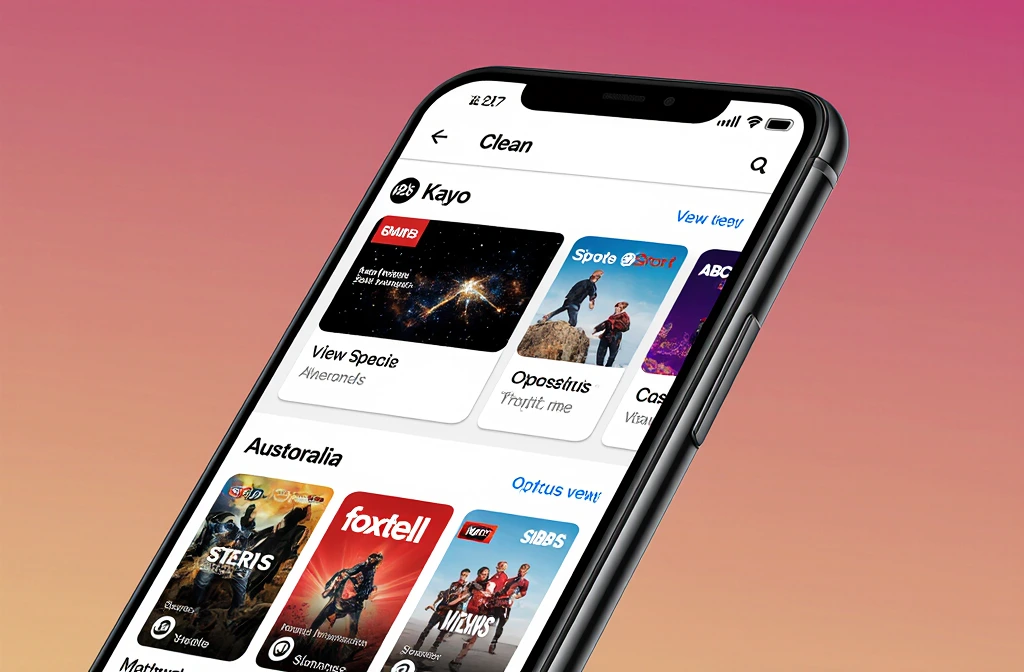
Illegal IPTV in Australia: What You Need to Know
Understanding IPTV legality in Australia means recognizing the warning signs of illegal services that violate Australian copyright laws.
Red Flags of Illegal IPTV Services
Based on my investigations and ACMA reports, here are warning signs of illegal IPTV:
🚩 “Lifetime” Subscriptions
- No legitimate service offers lifetime access
- Common tactic for illegal providers to get upfront payment
- Service often disappears after collecting money
🚩 Impossibly Low Prices
- “10,000+ channels for $10/month” is unrealistic
- Legal licensing costs make such pricing impossible
- If it seems too good to be true, it probably is
🚩 No Clear Business Information
- Legitimate services display ABN/ACN registration
- Contact information is vague or only through messaging apps
- No physical Australian business address
🚩 Pirated Content Advertising
- Promises of “every sports channel worldwide”
- Access to premium movies still in theaters
- “Unblock everything” marketing language
🚩 No Terms of Service or Privacy Policy
- Legal services must have clear terms
- GDPR/Privacy Act compliance is mandatory
- Missing legal documentation is a major red flag
Why Illegal IPTV Services Are Risky
Legal Risks:
- Copyright infringement can result in fines
- In extreme cases, legal action from rights holders
- ISP may throttle or warn about illegal streaming
Security Risks:
- Malware distribution through unofficial apps
- Credit card fraud and identity theft
- Personal data harvesting and sale
- Botnet recruitment using your devices
Service Risks:
- Sudden service shutdowns with no refunds
- Unreliable streaming quality
- No customer support
- Frequent channel disruptions
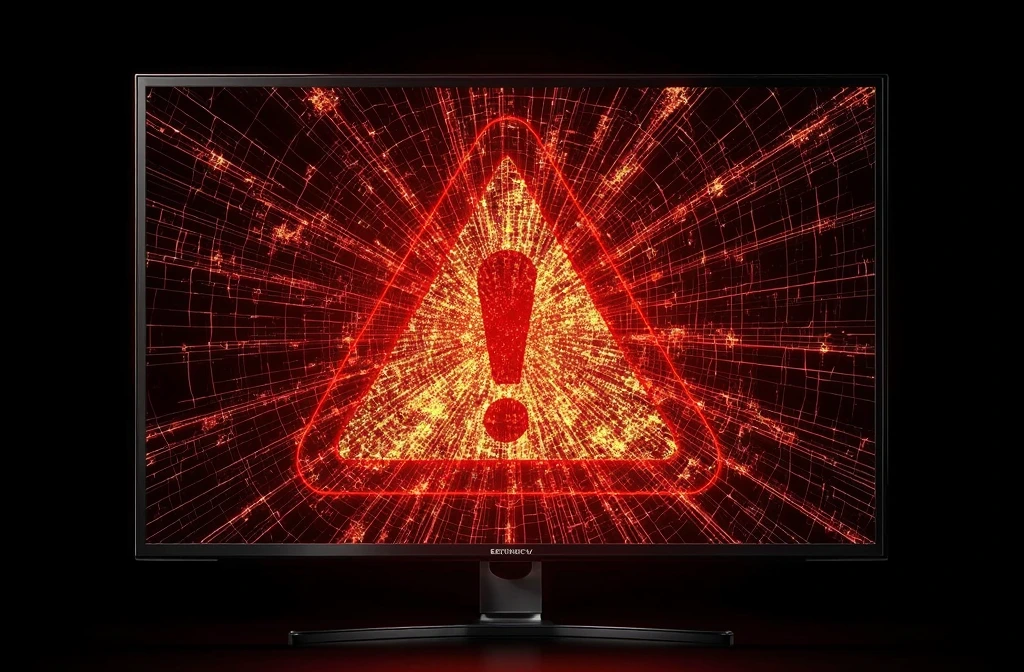
Penalties and Enforcement: What Happens When You Break the Law
What Are the Penalties for Using Illegal IPTV?
When it comes to IPTV legality in Australia, understanding the potential consequences is crucial for every streaming user.
For Individual Users:
Under Australian law, penalties for copyright infringement can include:
Civil Penalties:
- Compensation to copyright holders for damages
- Legal costs if taken to court
- Injunctions preventing future use
Criminal Penalties (Rare for Individual Users):
- Under Section 132AC of the Copyright Act
- Fines up to $117,000 for individuals
- Imprisonment up to 5 years for serious infringement
Reality Check: While severe penalties exist, enforcement against individual users is rare. However, rights holders are becoming more aggressive, and several Australian users have received legal notices in recent years.
For IPTV Providers and Resellers:
Much stricter enforcement:
- Fines up to $585,000 for corporations
- Criminal prosecution for commercial piracy
- Asset seizure and business closure
- Imprisonment for operators
Recent Australian Cases:
- 2024: Melbourne IPTV reseller fined $80,000 plus legal costs
- 2023: Sydney operation shut down, operators charged criminally
- 2024: Perth man sentenced to 12 months home detention for IPTV piracy
How ACMA Enforces IPTV Laws in Australia
Active Enforcement Methods:
- Website Blocking: Courts order ISPs to block illegal IPTV domains
- Payment Processing Disruption: Stopping payment to illegal services
- Criminal Investigations: Serious cases referred to Australian Federal Police
- ISP Cooperation: Telstra, Optus, TPG identifying illegal streaming traffic
- Rights Holder Coordination: Working with sports leagues and entertainment companies
2024-2025 Enforcement Statistics:
- 80+ IPTV websites blocked by court orders
- 12 major IPTV operations shut down
- Hundreds of thousands of users affected by service closures
IPTV and VPNs: Legal Considerations in Australia
Is Using a VPN with IPTV Legal in Australia?
Short Answer: Using a VPN is legal in Australia, but what you use it for determines legality.
Legal VPN Uses with IPTV: ✅ Protecting your privacy while using legal services
✅ Securing your connection on public Wi-Fi
✅ Preventing ISP throttling of legitimate streaming
✅ General internet privacy
Legally Gray VPN Uses: ⚠️ Accessing geo-restricted content you’ve paid for (e.g., US Netflix with Australian subscription)
⚠️ Circumventing regional sports blackouts
⚠️ Accessing international streaming services unavailable in Australia
Illegal VPN Uses: ❌ Accessing pirated IPTV services
❌ Circumventing copyright protections
❌ Distributing copyrighted content
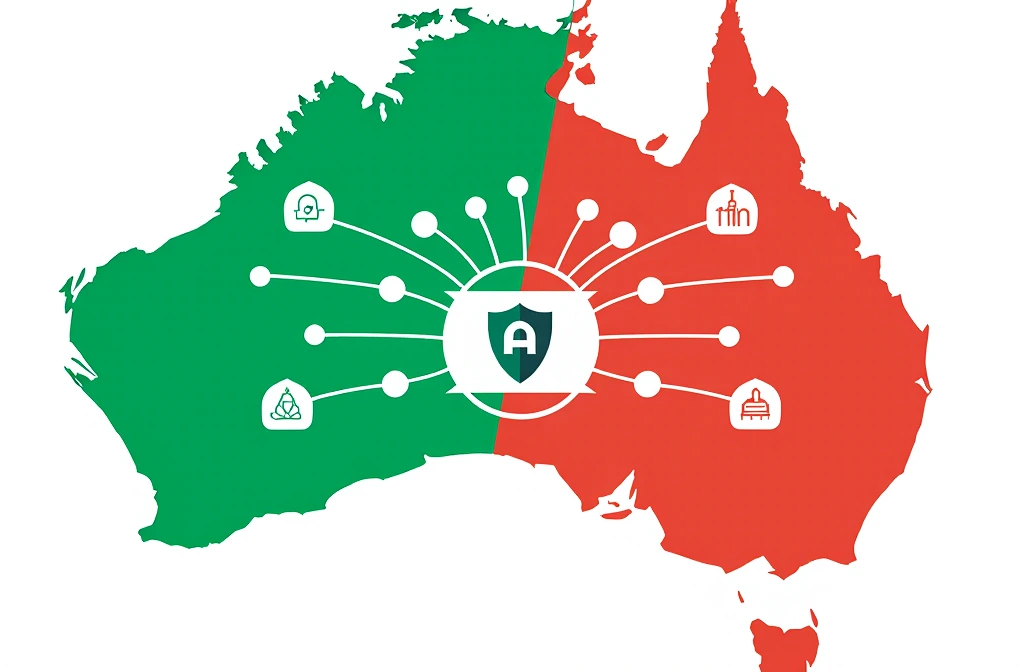
VPN Risks Even for Legal IPTV
Terms of Service Violations:
- Most streaming services prohibit VPN use in their ToS
- Account termination is possible if detected
- You lose access even if you’ve paid
Example: Netflix Australia ToS explicitly prohibits using VPNs to access content from other regions. While not illegal, it can result in account cancellation.
My Professional Recommendation
If you’re using legal IPTV services in Australia, you generally don’t need a VPN. However, if you choose to use one:
- Use reputable VPN providers (ExpressVPN, NordVPN, Surfshark)
- Only use with services you’ve legitimately subscribed to
- Accept the risk of ToS violations
- Never use a VPN to access clearly pirated content
How to Verify if an IPTV Service is Legal in Australia
I’ve developed this checklist through years of consulting work. Use it to evaluate any IPTV service:
The IPTV Legality Verification Checklist
✅ Step 1: Check Australian Business Registration
- Search ASIC Connect for ABN/ACN
- Verify physical Australian address
- Confirm company is in good standing
✅ Step 2: Review Licensing Claims
- Does provider specify which content they’re licensed for?
- Can they show evidence of broadcasting agreements?
- Are partnerships with rights holders documented?
✅ Step 3: Analyze Pricing Reality
- Compare to known legal services
- If drastically cheaper, investigate why
- Remember: licensing costs money
✅ Step 4: Examine Terms and Conditions
- Clear refund policy
- Privacy policy complying with Privacy Act 1988
- Transparent billing practices
- Professional legal language
✅ Step 5: Research Company Reputation
- Google reviews from Australian users
- Check ACMA enforcement lists
- Look for media coverage or legal issues
- Verify customer support channels
✅ Step 6: Test Customer Support
- Contact support with questions about licensing
- Legitimate services will provide clear answers
- Note responsiveness and professionalism
✅ Step 7: Review Payment Methods
- Legal services accept standard payment methods
- Credit cards, PayPal, bank transfer
- Cryptocurrency-only is a red flag
- Gift cards or Western Union is very suspicious
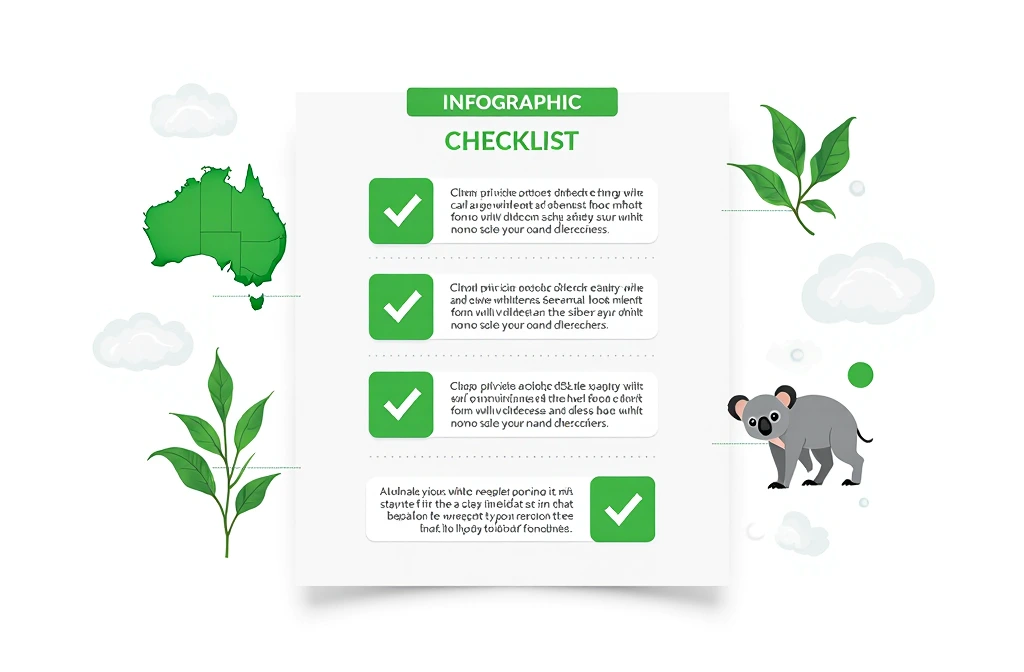
Real Example: How I Verified Kayo Sports Legality
Let me walk you through verifying a legitimate service:
- Business Check: Streamotion Pty Ltd (Kayo’s operator), ABN: 70 618 833 675, registered NSW
- Licensing: Subsidiary of Foxtel, holds legitimate Australian sports broadcasting rights
- Pricing: $25-35/month – realistic for licensed content
- Terms: Comprehensive ToS and Privacy Policy on website
- Reputation: Extensively covered in Australian media, no legal controversies
- Support: 24/7 Australian customer service, professional responses
- Payment: Credit cards, PayPal, standard billing
Result: ✅ Verified Legal Service
Gray Area IPTV Services: Navigating the Uncertainty
Some IPTV services exist in legal gray areas. Here’s how to understand and navigate this complexity regarding IPTV legality in Australia:
What Makes an IPTV Service “Gray Area”?
Characteristics:
- Operates legally in another country
- Doesn’t explicitly hold Australian broadcasting rights
- May use user-uploaded content or third-party sources
- Unclear content sourcing methodology
- Operates internationally without specific Australian licensing
Examples of Gray Area Scenarios
International Sports Streaming:
- Service licensed for sports in Europe
- Accessible in Australia but not specifically licensed here
- May technically violate territorial licensing agreements
- Low enforcement risk but legal uncertainty
Ethnic/Cultural Content:
- Services providing content from specific countries
- May have licensing in country of origin
- Australian licensing status unclear
- Often tolerated due to serving niche markets
My Professional Assessment
Gray area services present risks:
Legal Risks: ⚠️ Medium
- Unlikely to face individual prosecution
- Service could be shut down suddenly
- Rights holders could start enforcement
Security Risks: ⚠️ Medium-High
- Less regulated than major Australian providers
- Data privacy unclear
- Payment security varies
Service Risks: ⚠️ High
- Service continuity uncertain
- Quality often inconsistent
- Limited recourse if issues arise
My Recommendation: If you choose gray area services:
- Never pay for “lifetime” subscriptions
- Use payment methods with buyer protection
- Understand you’re taking legal and security risks
- Don’t invest heavily in these services
- Have backup legal options available
The Future of IPTV Laws in Australia
Based on my analysis of current trends and regulatory developments, here’s what I expect for IPTV legality in Australia:
Increasing Enforcement (2025-2027)
Predictions:
- More aggressive blocking of illegal IPTV websites
- Increased cooperation between ACMA, AFP, and rights holders
- Possible targeting of high-volume individual users
- Stricter penalties for IPTV resellers and operators
Evidence:
- Recent court rulings expand blocking powers
- Sports leagues investing heavily in anti-piracy
- Government commitment to protecting creative industries
Technology Developments
Anti-Piracy Technology:
- Advanced watermarking identifying content sources
- Real-time detection of illegal streams
- AI-powered content fingerprinting
- Blockchain authentication of licensed content
Legal Service Improvements:
- More competitive pricing from legal providers
- Better content libraries and user experience
- Flexible subscription models
- Improved NBN infrastructure for 4K streaming
Regulatory Changes on the Horizon
Potential New Legislation:
- Stricter ISP obligations to prevent piracy
- Enhanced penalties for commercial IPTV piracy
- Possible “three strikes” system for users
- International cooperation treaties for cross-border enforcement

Common Myths About IPTV Laws in Australia
Let me debunk some widespread misconceptions I encounter constantly:
Myth #1: “If I’m just watching, not distributing, it’s legal”
Reality: Accessing pirated content is still copyright infringement in Australia, even if you’re not sharing it. While enforcement against individual viewers is rare, it’s not legal.
Myth #2: “Using a VPN makes IPTV legal”
Reality: A VPN doesn’t change the legal status of the content. If you’re accessing pirated material, it’s illegal whether you use a VPN or not. VPNs only provide privacy, not legal immunity.
Myth #3: “IPTV services advertised on social media must be legitimate”
Reality: Illegal IPTV providers extensively advertise on Facebook, Instagram, and other platforms. Social media advertising doesn’t indicate legality.
Myth #4: “If thousands of people use it, it must be legal”
Reality: Popularity doesn’t equal legality. Many widely-used IPTV services are illegal, and mass shutdowns have left thousands of users without service or refunds.
Myth #5: “ACMA only goes after providers, never users”
Reality: While individual prosecutions are rare, they do happen. Rights holders have sent legal notices to users, and this trend may increase.
Myth #6: “International IPTV services don’t fall under Australian law”
Reality: If you’re accessing content in Australia, Australian law applies to you. The service’s location doesn’t protect you legally.
Myth #7: “Sports streaming is okay because it’s live content”
Reality: Live sports broadcasts are heavily protected by copyright. AFL, NRL, and other leagues actively pursue illegal streamers and viewers.
Myth #8: “Free trials mean the service is legal”
Reality: Illegal services often offer free trials to attract users. A trial period doesn’t indicate licensing or legality.
Protecting Yourself: Best Practices for Legal IPTV Use in Australia
Safe IPTV Streaming Guidelines
✅ Always Choose Licensed Services
- Stick with providers listed in the legal section of this guide
- Verify licensing before subscribing
- Accept that legal content costs money
✅ Verify Before You Buy
- Use my verification checklist
- Research the provider thoroughly
- Check ACMA enforcement lists
✅ Use Secure Payment Methods
- Credit cards offer buyer protection
- Avoid cryptocurrency for unknown services
- PayPal provides dispute resolution
✅ Protect Your Personal Information
- Use strong, unique passwords
- Enable two-factor authentication where available
- Be cautious about sharing payment details
✅ Monitor Your Subscriptions
- Keep records of all IPTV subscriptions
- Watch for unauthorized charges
- Cancel services you’re not using
✅ Stay Informed
- Follow ACMA announcements
- Keep up with legal developments
- Adjust your choices as regulations evolve
Red Flags to Avoid
Never Subscribe If: ❌ Pricing seems unrealistically low
❌ Provider can’t provide licensing information
❌ No clear refund policy
❌ Payment only through cryptocurrency or gift cards
❌ Website has spelling errors and unprofessional design
❌ No contact information beyond messaging apps
❌ Service appears on ACMA enforcement lists

IPTV Alternatives: Legal Streaming Options in Australia
If you’re concerned about streaming laws, consider these legal alternatives that ensure full compliance with IPTV legality in Australia:
Sports Streaming
Kayo Sports – $25-35/month
- Every sport Australians love
- No contract required
- 7-day free trial
- Legal Status: ✅ Fully licensed
Optus Sport – $24.99/month
- English Premier League
- UEFA competitions
- Legal Status: ✅ Fully licensed
Entertainment Streaming
Netflix – $10.99-22.99/month
- Massive content library
- Original productions
- Legal Status: ✅ Fully licensed
Stan – $12-21/month
- Australian and international content
- Exclusive shows and movies
- Legal Status: ✅ Fully licensed
Disney+ – $13.99-17.99/month
- Disney, Marvel, Star Wars, National Geographic
- Family-friendly content
- Legal Status: ✅ Fully licensed
Amazon Prime Video – $6.58/month
- Movies, series, originals
- Included with Prime membership
- Legal Status: ✅ Fully licensed
Live TV Options
Fetch TV – $54.95+/month
- 1000+ channels
- Streaming app integration
- Legal Status: ✅ Fully licensed
Foxtel Now – $29-104/month
- Comprehensive channel packages
- Sports, movies, entertainment
- Legal Status: ✅ Fully licensed
Free Legal Streaming
ABC iview, SBS On Demand, 7plus, 9Now, 10 Play
- All free with ads
- Australian content
- Legal Status: ✅ 100% legal
Frequently Asked Questions About IPTV Legality in Australia
Q1: Is IPTV legal in Australia?
Yes, IPTV technology is legal in Australia. However, IPTV legality in Australia depends on whether the service has proper broadcasting licenses. Services like Kayo Sports, Optus Sport, Fetch TV, and Foxtel Now are completely legal. Unlicensed IPTV services distributing pirated content are illegal under Australian law.
Q2: Can I get in trouble for using illegal IPTV in Australia?
Yes, though enforcement against individual users is currently rare. Under the Copyright Act 1968, you could face civil penalties including fines and legal costs. While criminal prosecution is unlikely for casual users, rights holders are becoming more aggressive in enforcement, and questions around IPTV legality in Australia are increasingly important.
Q3: How can I tell if an IPTV service is legal in Australia?
Check for Australian business registration (ABN/ACN), verify licensing claims, ensure realistic pricing, review their terms of service, and research their reputation. Legal services are transparent about their licensing and operate openly. Use my verification checklist in this guide to assess IPTV legality in Australia compliance.
Q4: Is using a VPN with IPTV illegal in Australia?
Using a VPN is legal in Australia, but using a VPN to access pirated content doesn’t make the activity legal. VPNs are legal for privacy and security, but they don’t provide legal immunity for copyright infringement or change the fundamental principles of IPTV legality in Australia.
Q5: What happens if my illegal IPTV service gets shut down?
If an illegal IPTV service is shut down by Australian authorities, you’ll lose access immediately with no refund. Your payment information may be compromised, and in rare cases, rights holders could pursue legal action against users. There’s no customer protection or recourse when using services that violate IPTV legality in Australia.
Q6: Are international IPTV services legal in Australia?
It depends. Some international services operate legally with global licensing. However, many don’t hold Australian broadcasting rights, making them illegal to use here even if legal in their home country. Always verify their compliance with IPTV legality in Australia before subscribing.
Q7: Has anyone in Australia been prosecuted for using illegal IPTV?
While prosecutions of individual users are rare, rights holders have sent legal notices to users, and there have been cases of users facing civil penalties. Enforcement is increasing, particularly for high-volume users who ignore IPTV legality in Australia.
Q8: Is it legal to use IPTV for sports streaming in Australia?
Yes, if you use licensed services like Kayo Sports or Optus Sport that comply with IPTV legality in Australia. Unlicensed sports IPTV services are illegal, and sports leagues (AFL, NRL, EPL) actively pursue illegal streamers.
Q9: What’s the difference between legal and illegal IPTV services?
Legal IPTV services have broadcasting licenses, pay content creators, comply with Australian regulations, and operate transparently – all requirements of IPTV legality in Australia. Illegal services distribute pirated content without licensing, often at unrealistically low prices.
Q10: Can my ISP tell if I’m using illegal IPTV?
ISPs can detect streaming traffic but typically can’t determine if specific IPTV content is legal or illegal without deep packet inspection. However, ISPs must cooperate with court orders to block illegal IPTV websites as part of enforcing IPTV legality in Australia.
Q11: What are the penalties for running an illegal IPTV service in Australia?
Penalties are severe: fines up to $585,000 for corporations, criminal prosecution, asset seizure, business closure, and potential imprisonment. Several Australian IPTV operators have faced criminal charges in recent years for violating streaming laws.
Q12: Is IPTV from overseas legal to use in Australia?
Not necessarily. Even if an IPTV service is legal overseas, it may not have Australian broadcasting rights. Using such services could violate Australian copyright law and the principles of IPTV legality in Australia, regardless of their legal status elsewhere.
Q13: Do legal IPTV services cost more than illegal ones?
Generally yes, because legal services pay licensing fees to content creators. However, the price difference has narrowed, with legal options like Kayo Sports ($25-35/month) offering competitive value compared to the risks of illegal services that violate IPTV legality in Australia.
Q14: What is ACMA’s role in IPTV regulation?
ACMA (Australian Communications and Media Authority) regulates broadcasting in Australia, enforces against illegal IPTV operators, coordinates website blocking, and works with ISPs and rights holders to combat piracy and maintain IPTV legality in Australia standards.
Q15: If an IPTV service offers a free trial, does that make it legal?
No. Illegal IPTV services often offer free trials to attract users. A trial period doesn’t indicate licensing or compliance with IPTV legality in Australia. Always verify the service’s licensing status before subscribing, even for free trials.
Taking Action: Your Next Steps for Legal IPTV in Australia
Now that you understand streaming laws and regulations, here’s what I recommend:
Immediate Actions
✅ Audit Your Current Services
- Review all IPTV subscriptions you currently have
- Use my verification checklist to assess their legality
- Cancel any services that raise red flags
✅ Choose Legal Alternatives
- Select from my recommended legal services
- Take advantage of free trials
- Test during your typical viewing times
✅ Secure Your Accounts
- Change passwords for any suspicious services
- Monitor credit cards for unauthorized charges
- Enable two-factor authentication on legal services
Long-Term Strategy
✅ Stay Informed
- Bookmark ACMA’s website for enforcement updates
- Follow Australian tech news
- Adjust your choices as regulations evolve
✅ Educate Others
- Share this guide with friends and family
- Help others understand Australian streaming laws
- Promote legal viewing options
✅ Support Legal Services
- Subscribe to licensed providers
- Provide feedback to improve legal offerings
- Encourage competition and innovation in legal IPTV
XC
Conclusion: Making Informed Choices About IPTV in Australia
After 15+ years in tech consulting and extensive research into streaming regulations, my conclusion is clear: legal IPTV options have never been better, and the risks of illegal services have never been higher.
